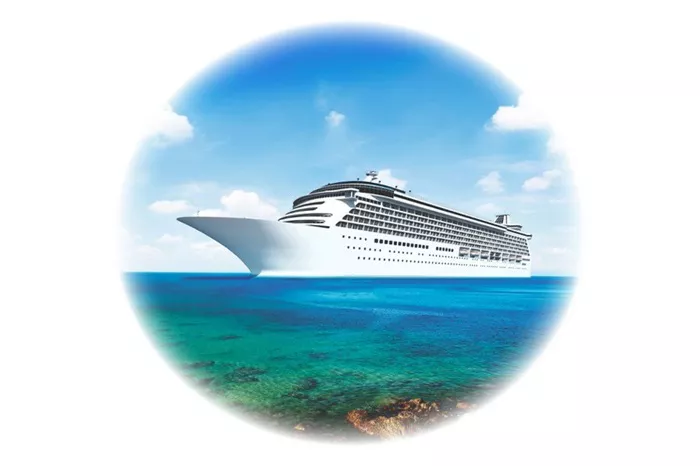Cruise vacations are an exciting prospect for many travelers, offering a blend of relaxation and adventure on the high seas. However, unforeseen circumstances can disrupt even the best-laid plans. This is where cruise insurance becomes crucial, providing peace of mind by covering various contingencies that could otherwise result in financial losses. One of the common questions that arise regarding cruise insurance is its refundability. Let’s delve into the details to understand the nuances of cruise insurance refunds.
Understanding Cruise Insurance
Cruise insurance, often referred to as travel insurance specific to cruise vacations, is designed to protect travelers from financial losses incurred due to trip cancellations, interruptions, medical emergencies, and other unforeseen events. It typically covers expenses such as non-refundable cruise fares, pre-paid excursions, medical expenses incurred during the trip, and even emergency medical evacuation if necessary.
Key Coverage Areas
Trip Cancellation: This coverage reimburses you for prepaid, non-refundable trip costs if you have to cancel your cruise due to covered reasons such as illness, injury, or other emergencies.
Trip Interruption: If your cruise is interrupted due to a covered reason—such as illness, injury, or severe weather—trip interruption coverage helps reimburse the unused portion of your trip and additional transportation expenses to return home.
Medical Coverage
Emergency Medical Expenses: Cruise insurance often includes coverage for emergency medical treatment during your trip, including doctor visits, hospital stays, and prescriptions.
Other Coverage Considerations
Baggage Loss or Delay: Coverage for lost, stolen, or damaged baggage, as well as reimbursement for essentials if baggage is delayed.
Travel Delay: Compensation for additional accommodation, meals, and transportation expenses incurred due to covered delays, such as flight or cruise delays.
Refundability of Cruise Insurance
The refundability of cruise insurance depends on several factors, primarily dictated by the terms and conditions set forth by the insurance provider and the specific policy purchased. While policies can vary significantly between insurers, there are general guidelines to consider regarding the refundability of cruise insurance.
Conditions for Refundability
Cancellation Before Trip Start: In most cases, cruise insurance policies allow for a full refund if you cancel the insurance before the start of your trip and have not filed any claims against the policy. This provision is designed to accommodate changes in travel plans or circumstances that may prompt travelers to reconsider their insurance coverage.
Cooling-Off Periods: Some insurers offer a “cooling-off period” immediately following the purchase of the policy. During this period, policyholders have the option to cancel their cruise insurance and receive a full refund of the premium paid, provided that the trip has not commenced and no claims have been made.
See Also: Best Cruise Insurance Plans of July 2024
Policy-Specific Considerations
Reviewing Terms and Conditions: It is essential to carefully review the terms and conditions outlined in your cruise insurance policy regarding refund eligibility. Specific clauses may exist regarding the timing of cancellation, conditions under which refunds are permitted, and any administrative fees that may apply.
Direct Communication with Insurer: To initiate the cancellation of your cruise insurance policy and request a refund, direct communication with your insurance provider is necessary. This typically involves contacting their customer service department or designated claims center, providing relevant details such as your policy number and reasons for cancellation.
Navigating Refund Processes
Contacting Your Insurer: Begin the process by contacting your insurance provider directly to discuss cancellation and refund options. Most insurers offer dedicated customer service lines or online portals where policyholders can initiate such requests.
Providing Necessary Information: When requesting a refund for cruise insurance, be prepared to provide essential information, including your policy number, trip details, and reasons for cancellation. Clear and accurate communication helps streamline the process and ensures that your request is processed efficiently.
Conclusion
Cruise insurance offers valuable protection against unforeseen events that could disrupt your cruise vacation. While the refundability of cruise insurance varies depending on the policy and insurer, understanding the terms and conditions can help you make informed decisions. Always review your policy carefully and consider consulting with your insurance provider for specific questions regarding refunds.
FAQs
1. Is Cruise Insurance Necessary?
In most cases, it is not required to have travel insurance for a cruise. However, it’s always best to check with your cruise line about their requirements. You don’t want to be prevented from boarding because you don’t have proof of insurance.
2. What does cruise travel insurance cover?
Most cruise insurance plans may cover medical emergencies, trip cancellation, trip interruption, medical evacuation, and lost, damaged, or stolen luggage when you’re on a cruise. Cruise insurance can also cover cruise-ship disablement and pre-existing conditions, depending on when you buy coverage.
3. Can you go on a cruise without insurance?
Yes, you must have appropriate travel insurance – with healthcare cover – in place to cover your cruise holiday as well as any other destinations you may be visiting independently. Please ensure that it covers your circumstances – including any pre-existing medical conditions.
4. Can you get cruise insurance after booking?
You can purchase cruise travel insurance immediately after booking your trip until just before your departure. But the best time to take out coverage is as soon as you have made your booking. This way, you will have a longer coverage window for trip cancellation.
5. Can you buy cruise insurance after final payment?
Can you buy travel insurance after booking a cruise? It depends. Some cruise lines require the purchase of a travel insurance policy before the final payment date when charges become nonrefundable. Others require the purchase of coverage a certain number of days before departure.






















